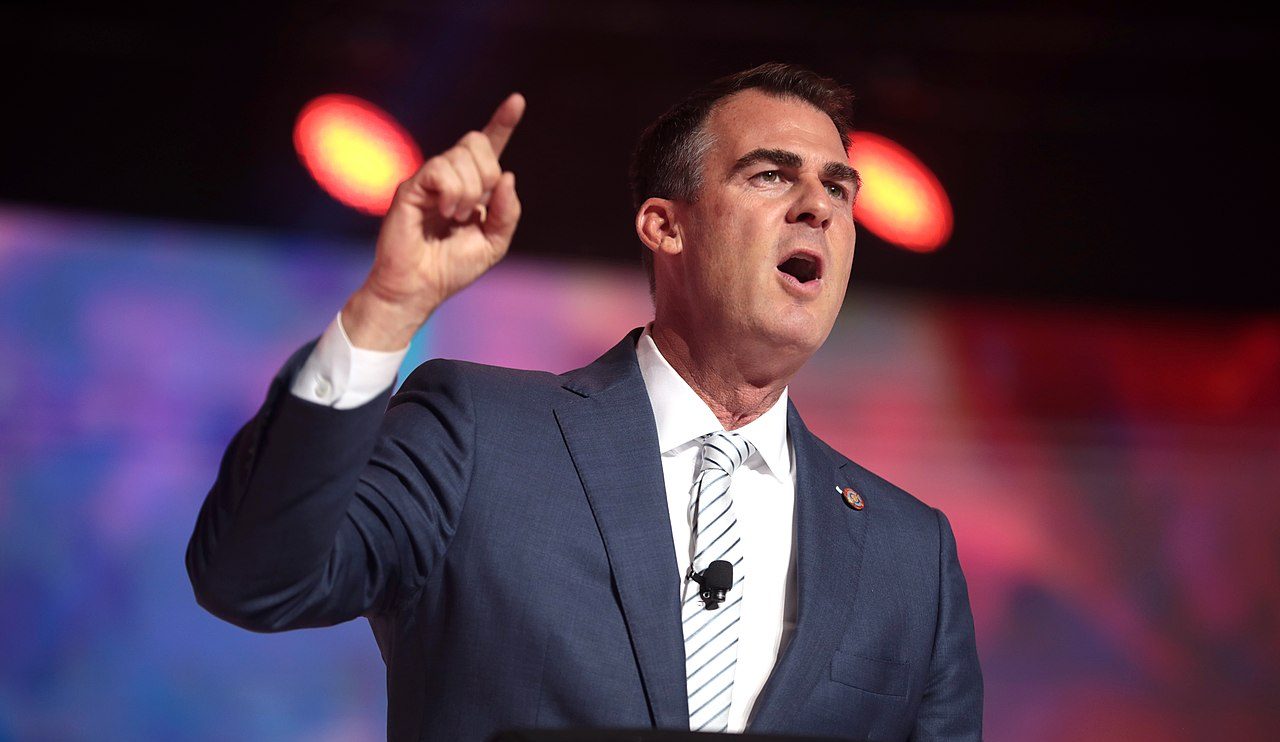
Vicky Arias, FISM News
[elfsight_social_share_buttons id=”1″]
Oklahoma Gov. Kevin Stitt on Monday signed a bill into law prohibiting gender transition surgeries and procedures for minors.
The law, known as SB 613, bans medical providers from performing gender-altering procedures, which include sex-altering surgeries, cross-sex hormones, and puberty-blocking drugs, on individuals younger than 18 years of age.
Healthcare professionals who violate the new law will be charged with a felony.
An exception to the bill provides a period of six months to decrease and wean off gender-transitioning medications for children already taking the drugs.
Other exceptions include provisions for the continuation of treatment for various disorders, including intersex conditions, mental and behavioral healthcare counseling, treatment of injury or disease caused by previous transition procedures, anxiety and depression treatments related to gender dysphoria, and treatments for precocious or delayed puberty.
Gov. Stitt in a press release yesterday expressed the need to “stand up for what’s right” in order to protect children.
“Last year, I called for a statewide ban on all irreversible gender transition surgeries and hormone therapies on minors, so I am thrilled to sign [SB 613] into law today and protect our kids,” Gov. Stitt said of the bill. “We cannot turn a blind eye to what’s happening across our nation, and as governor, I am proud to stand up for what’s right and ban life-altering transition surgeries on children in the state of Oklahoma.”
The state of Oklahoma joins a number of other states, including Alabama, Georgia, Idaho, Iowa, and Indiana, that have either initiated or passed similar legislation. According to the Movement Advancement Project, a total of 17 states have placed bans on performing gender-altering procedures on minors.
In Missouri, a judge on Monday stayed an emergency order issued by Missouri Attorney General Andrew Bailey that would’ve placed medical guidelines on gender transition procedures for both adults and minors.
According to Axios, Bailey argued that these gender-altering procedures are “experimental” and outlined guidelines for transgender patients. Under the guidelines, patients would be required to undergo 15 sessions of “psychological assessment,” “present an ‘intense pattern’ of gender dysphoria for at least 3 years before accessing gender-affirming treatments,” be screened for autism, and, for minors, healthcare providers would need to determine whether or not the child has a social media addiction.
“As Attorney General, I will always fight to protect children because gender transition interventions are experimental,” Bailey said.
My office has uncovered a clandestine network of clinics across the state who are harming children by ignoring the science. When even progressive countries like Sweden, Norway, Finland, and the United Kingdom have all sharply curtailed these procedures, it’s time for the United States to course correct. My office is stepping up to protect children throughout the state while we investigate the allegations and how they are harming children.
The order was challenged by the ACLU of Missouri, Lambda Legal, and the Bryan Cave Leighton Paisner law firm, prompting St. Louis County Circuit Judge Ellen Ribaudo to temporarily block the order until May 15, so that it may be heard before the court.
The Associated Press reported that Missouri Solicitor General “Joshua Divine argued that Bailey’s order would not ban gender-affirming care, but provide ‘basic procedural guardrails.’”
The number of young people identifying as transgender has exploded in recent years.
According to an NHS England study from October 2022, there has been “a significant and sharp rise in referrals” to Britain’s Gender Identity Development Service. The study cites “over 5,000 referrals” to the clinic in 2021-22, compared to “just under 250 referrals in 2011-12,” just 10 years earlier, and states that “a significant number of children are also presenting with neurodiversity and other mental health needs and risky behaviors which requires careful consideration and needs to be better understood.”
Additionally, according to the UCLA Williams Institute, “the number of youth who identify as transgender has doubled from [their] previous estimate” in 2016-17. The report also found that “nearly one in five people who identify as transgender are ages 13-17.”
The dramatic rise in self-identifying transgender minors has led some experts to wonder whether social media and peer influence is playing a part in the growing numbers.
According to Reuters, Corey Basch, a public health professor at William Paterson University in New Jersey, said she’s concerned over minors making life-altering diagnoses on themselves without proper medical guidance.
“Teens are so incredibly vulnerable to information overload and being pushed in one direction,” Basch said. “They could be lacking the analytical skills to question who is giving this advice and if their advice is valid.”
